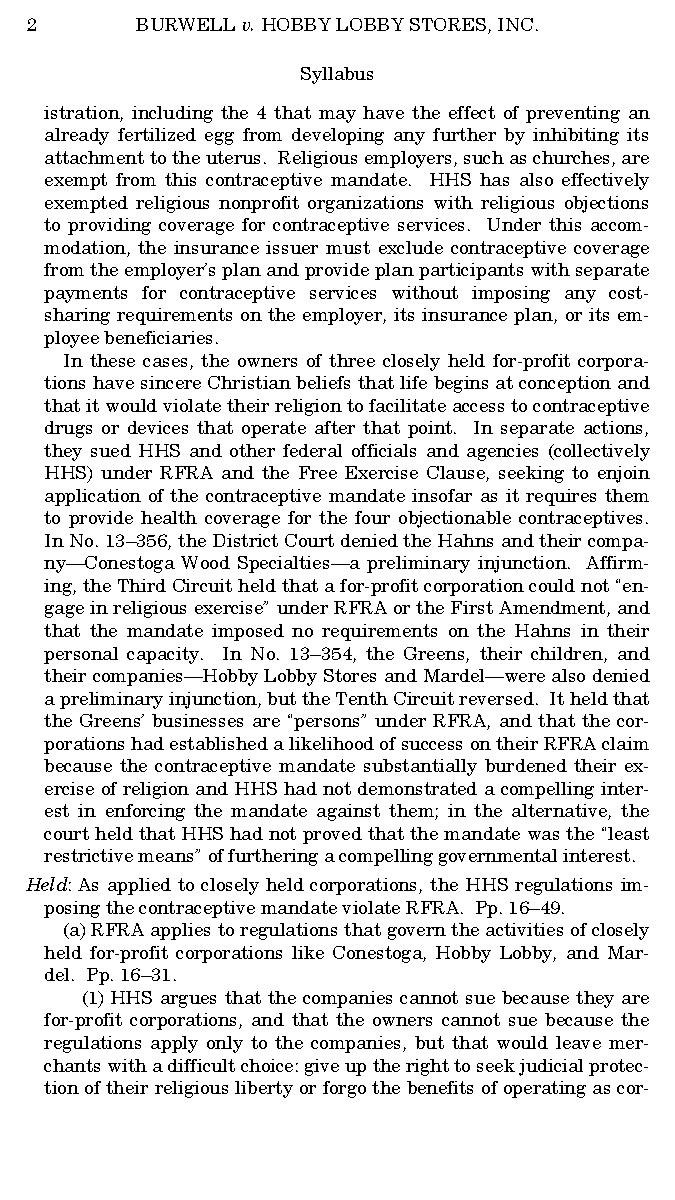Syllabus
istration, including the 4 that may have the effect of preventing an already fertilized egg from developing any further by inhibiting its attachment to the uterus. Religious employers, such as churches, are exempt from this contraceptive mandate. HHS has also effectively exempted religious nonprofit organizations with religious objections to providing coverage for contraceptive services. Under this accommodation, the insurance issuer must exclude contraceptive coverage from the employer's plan and provide plan participants with separate payments for contraceptive services without imposing any cost-sharing requirements on the employer, its insurance plan, or its employee beneficiaries.
In these cases, the owners of three closely held for-profit corporations have sincere Christian beliefs that life begins at conception and that it would violate their religion to facilitate access to contraceptive drugs or devices that operate after that point. In separate actions, they sued HHS and other federal officials and agencies (collectively HHS) under RFRA and the Free Exercise Clause, seeking to enjoin application of the contraceptive mandate insofar as it requires them to provide health coverage for the four objectionable contraceptives. In No. 13–356, the District Court denied the Hahns and their company—Conestoga Wood Specialties—a preliminary injunction. Affirming, the Third Circuit held that a for-profit corporation could not "engage in religious exercise" under RFRA or the First Amendment, and that the mandate imposed no requirements on the Hahns in their personal capacity. In No. 13–354, the Greens, their children, and their companies—Hobby Lobby Stores and Mardel—were also denied a preliminary injunction, but the Tenth Circuit reversed. It held that the Greens' businesses are "persons" under RFRA, and that the corporations had established a likelihood of success on their RFRA claim because the contraceptive mandate substantially burdened their exercise of religion and HHS had not demonstrated a compelling interest in enforcing the mandate against them; in the alternative, the court held that HHS had not proved that the mandate was the "least restrictive means" of furthering a compelling governmental interest.
Held: As applied to closely held corporations, the HHS regulations imposing the contraceptive mandate violate RFRA. Pp. 16–49.
(a) RFRA applies to regulations that govern the activities of closely held for-profit corporations like Conestoga, Hobby Lobby, and Mardel. Pp. 16–31.
(1) HHS argues that the companies cannot sue because they are for-profit corporations, and that the owners cannot sue because the regulations apply only to the companies, but that would leave merchants with a difficult choice: give up the right to seek judicial protection of their religious liberty or forgo the benefits of operating as cor-
